Product Overview
Thyroid Desiccated Porcine Capsules are an immediate-release compounded medication that contain desiccated thyroid extract derived from porcine (pig) thyroid glands. This extract provides a combination of the two primary thyroid hormones: levothyroxine (T₄) and liothyronine (T₃). Each capsule is prepared from purified, dried pig thyroid tissue standardized for hormone content. For example, a typical 60 mg capsule (often termed “1 grain”) contains around 38 mcg of T₄ and 9 mcg of T₃ in a fixed ratio, along with trace amounts of other thyroid constituents.[1] These capsules are used in the treatment of hypothyroidism, which is a condition where the thyroid gland does not produce enough hormones to meet the body’s needs. By supplementing the body with natural T₄ and T₃, the capsules may help restore normal metabolic activity in patients with underactive thyroid function.[2] This therapy has been in clinical use for well over a century, predating modern synthetic thyroid medications and even the formation of the U.S. Food and Drug Administration (FDA).[3]
It is important to note that Thyroid Desiccated Porcine is not an FDA-approved manufactured drug; rather, it is available as a prescription-only compounded medication prepared in 503A pharmacies for individual patients. (Section 503A of the U.S. Federal Food, Drug, and Cosmetic Act permits licensed pharmacies to compound personalized medications pursuant to a physician’s prescription for a specific patient.)[4] Because its use in the United States began before current drug approval requirements, commercial desiccated thyroid products (e.g., Armour® Thyroid) have long been marketed without formal FDA new-drug approval.[3] Compounded thyroid capsules are prepared under strict pharmacy standards (using USP-grade desiccated thyroid powder) to ensure consistent hormone content and quality for each batch. Nonetheless, patients should be aware that natural thyroid preparations can have lot-to-lot variability in hormone content and absorption, and thus careful monitoring by healthcare providers is essential.[2]
Clinicians may prescribe Thyroid Desiccated Porcine Capsules as an alternative to synthetic levothyroxine in certain cases. Some patients who do not feel fully relieved of hypothyroid symptoms on T₄-only therapy might be considered for this combined T₄/T₃ therapy. The presence of T₃ (the more active thyroid hormone) in the desiccated extract means this product can deliver a small amount of direct T₃ to the body in addition to T₄. This may offer symptomatic benefit for a subset of patients who have difficulty converting T₄ to T₃ efficiently, although robust scientific evidence on long-term outcomes is limited and mainstream guidelines generally recommend levothyroxine as first-line treatment.[3] Because of these uncertainties, the tone in using this therapy is academically cautious; it may help certain individuals, but it is not considered a standard or superior therapy for most patients with hypothyroidism.[3] Any decision to use desiccated thyroid should be made collaboratively between patient and physician, weighing potential benefits and risks. Importantly, this medication should never be used without a valid prescription and appropriate medical supervision. It is only available through specialized compounding pharmacies, reflecting its tailored, patient-specific use under the law.[4] This ensures that therapy is initiated and monitored by qualified healthcare professionals familiar with thyroid replacement management.[2] Each capsule strength, 30 mg, 60 mg, 90 mg, and 120 mg, is formulated for immediate release in the gastrointestinal tract, allowing for daily dosing and absorption of the active hormones.[1] By restoring thyroid hormone levels toward normal, the therapy could improve symptoms of hypothyroidism (such as fatigue, weight gain, cold intolerance, and cognitive slowing) in appropriate patients, though individual responses vary.[2] It must be emphasized that this compounded product is a prescription-only medication used when medically indicated, not a supplement or weight-loss aid, and it should be used strictly according to a physician’s guidance.[5]
Dosage is highly individualized. The usual starting dose for otherwise healthy adults is 30 mg once daily, with increments of 15-30 mg every two to three weeks based on labs and symptoms. Patients with severe hypothyroidism, cardiac disease, or the elderly may start at 15 mg daily. Maintenance doses commonly range from 60 mg to 120 mg daily; doses above 180 mg are uncommon and warrant evaluation for malabsorption or non-adherence.[1]
Capsules should be taken on an empty stomach with a full glass of water 30-60 minutes before breakfast. Calcium, iron, and aluminum-containing products should be taken at least four hours apart. TSH and free T₄ are usually checked 4-6 weeks after any dose change and then every 6-12 months once stable.[1]
Thyroid Desiccated Porcine Capsules act by supplementing the body’s deficient thyroid hormones, thereby restoring normal metabolic processes in hypothyroid patients. The active ingredients, levothyroxine (T₄) and liothyronine (T₃), are identical to the hormones naturally produced by the human thyroid gland. T₄ is a prohormone that is converted in the body’s tissues to T₃, which is the more potent active form. T₃ binds to thyroid hormone receptors in the nuclei of cells throughout the body, functioning as a transcription regulator; it modulates the expression of numerous genes that control metabolism, growth, and development.[6] Through this genomic mechanism, thyroid hormones increase the basal metabolic rate of cells, enhance mitochondrial activity, and up-regulate enzymes involved in carbohydrate, fat, and protein metabolism. As a result, oxygen consumption and energy expenditure by tissues rise under the influence of thyroid hormones, leading to higher heat production and body-temperature regulation.[2]
The mechanism by which desiccated thyroid exerts its effects is essentially the same as for endogenous thyroid hormone. Once absorbed into the bloodstream from the capsule, T₄ and T₃ distribute to target tissues. T₄ has a longer half-life (approximately seven days) and serves as a reservoir that can be converted to T₃ as needed, whereas T₃ acts more rapidly but has a shorter duration of action. In peripheral tissues, an enzyme called deiodinase converts a portion of T₄ to active T₃, ensuring a steady supply of the active hormone. By providing both hormones, desiccated thyroid may mimic more closely the natural thyroid output (which includes a small fraction of direct T₃ in addition to predominantly T₄). However, the fixed T₄:T₃ ratio in porcine thyroid (approximately 4:1 by weight) is higher in T₃ content than what a typical human thyroid secretes. In humans, the thyroid gland produces mostly T₄, and only about 20 % of circulating T₃ comes directly from the gland (the rest is produced by conversion from T₄).[1] This means that desiccated thyroid therapy inherently provides a proportionally larger immediate dose of T₃ than the physiologic norm, which could lead to more pronounced peak T₃ levels shortly after dosing. This pharmacologic nuance may contribute to why some patients report feeling a difference (such as a boost in energy) on desiccated thyroid compared to T₄-only therapy, but it also necessitates cautious dosing to avoid T₃-related adverse effects (like palpitations) if the dose is even slightly excessive.[3]
At the cellular level, T₃ binds to thyroid hormone receptors (TRα and TRβ), which are ligand-activated transcription factors in the nucleus.[6] When T₃ binds, these receptors undergo conformational changes that lead to altered interaction with co-regulators and specific DNA sequences called thyroid hormone response elements. This triggers or represses the transcription of target genes involved in diverse physiological processes, from metabolic-enzyme production to developmental signaling pathways. The broad actions of thyroid hormones explain why they affect virtually every organ system. For instance, in the cardiovascular system, thyroid hormone increases heart rate and cardiac output by up-regulating beta-adrenergic receptors and enhancing myocardial contractility. In the central nervous system, adequate thyroid hormone is crucial for neuron maturation and function, influencing cognitive function and mood. In the musculoskeletal system, thyroid hormone modulates muscle protein turnover and bone turnover rates. Desiccated thyroid’s mechanism of action is thus a replacement therapy: by reintroducing the hormones that a patient’s failing thyroid gland cannot produce, it aims to normalize the feedback loop of the hypothalamic-pituitary-thyroid axis and alleviate the signs of hormone deficiency. If successful, TSH (thyroid-stimulating hormone) levels will decrease into the reference range as the pituitary senses sufficient hormone levels, and the patient’s symptoms of hypothyroidism will improve over time.[1] Individual response can vary, and finding the correct dose for each patient is key to achieving a euthyroid state without overshooting into excess.[1]
Thyroid Desiccated Porcine Capsules must not be used in certain situations where the risks outweigh any potential benefit. One absolute contraindication is unaddressed adrenal insufficiency (Addison’s disease or inadequate adrenal cortical function that has not been corrected). In patients with adrenal insufficiency, thyroid hormone administration can accelerate cortisol metabolism and precipitate an adrenal crisis; therefore, the adrenal condition should be treated (usually with corticosteroids) before initiating thyroid therapy. Another strict contraindication is untreated thyrotoxicosis, which refers to any cause of hyperthyroidism or excess circulating thyroid hormones. If a patient already has elevated thyroid hormone levels (as in Graves’ disease or toxic nodular goiter), giving additional T₄/T₃ is clearly inappropriate and dangerous. Thus, Thyroid Desiccated Porcine should never be given to a patient with overt hyperthyroidism. Similarly, patients who have shown hypersensitivity to any component of desiccated thyroid preparations should not use this product.[5] True allergic reactions to the hormones T₄ or T₃ themselves are exceedingly rare, but sensitivities could theoretically arise from the desiccated gland proteins or excipients used in compounding. If a patient has a known allergy to pork-derived products, this medication would be contraindicated since it is of porcine origin.[3]
It is critically important to understand that Thyroid Desiccated Porcine Capsules are not to be used for weight loss in euthyroid individuals. All thyroid hormones carry a boxed warning against use in people with normal thyroid function for the purpose of losing weight. In euthyroid patients, regular doses of thyroid hormone do not produce weight reduction and higher doses can cause life-threatening toxicity.[5] Therefore, any use of this medication as a “diet pill” or in weight management in the absence of a true hypothyroid diagnosis is contraindicated and considered dangerous. Additionally, desiccated thyroid is not indicated for treating infertility unless the infertility is associated with hypothyroidism.[3]
Certain medical conditions demand extreme caution or represent relative contraindications to thyroid hormone therapy. For example, patients who have recently suffered a heart attack (acute myocardial infarction) should generally not receive aggressive thyroid hormone replacement until stabilized, because thyroid hormones increase cardiac workload and oxygen demand. While not an absolute contraindication, uncontrolled cardiac arrhythmias or unstable coronary artery disease make thyroid initiation risky; in such cases, either therapy is deferred or started at a very low dose with careful monitoring. Elderly patients, especially those with underlying heart disease, are often poor candidates for desiccated thyroid unless clearly necessary, as they may be more sensitive to even mild hyperthyroid effects.[3] Likewise, if a patient has adrenal insufficiency or diabetes mellitus, thyroid replacement can aggravate these conditions, so those conditions must be concurrently managed. Untreated adrenal insufficiency, as noted, is a hard contraindication, and adrenal support should precede thyroid treatment in such cases.[5]
In summary, do not use Thyroid Desiccated Porcine Capsules in patients with (1) uncorrected adrenal cortical insufficiency, (2) untreated thyrotoxicosis or hyperthyroidism of any cause, or (3) known allergy to the product. Use of this medication for non-indicated purposes (obesity, uncomplicated infertility, fatigue in euthyroid patients, etc.) is strongly contraindicated due to lack of benefit and significant risk. Caution (with possible dose adjustments and close supervision) is warranted in patients with cardiovascular disease, in the elderly, and in those with longstanding severe hypothyroidism, as initiating full-dose therapy in these populations can precipitate adverse cardiac events.[5]
Thyroid Desiccated Porcine Capsules can interact with a variety of medications and substances, affecting either the absorption of the thyroid hormone or the way it influences other drugs’ effects. One major category of interaction involves absorption interference: certain medications and supplements can bind or sequester thyroid hormones in the gut, reducing their bioavailability. For instance, cholestyramine and colestipol, which are bile-acid sequestrants, can bind T₄ and T₃ in the intestines and prevent adequate absorption of thyroid medication. It is generally recommended to separate the dosing of desiccated thyroid and such binding agents by at least four to five hours to mitigate this effect.[7] Similarly, calcium supplements, iron supplements, aluminum-containing antacids, and sucralfate are known to bind thyroid hormones. If a patient takes calcium or iron, they should do so several hours apart from their thyroid capsule to avoid a significant reduction in thyroid hormone absorption. Foods high in fiber or soy products can also modestly reduce absorption in some cases, so consistency in diet and timing relative to medication is advised.
Another concern of interaction is with enzyme-inducing medications. Drugs that speed up the metabolism of thyroid hormones in the liver can cause the thyroid replacement dose to be less effective. Examples include certain anticonvulsants like phenytoin and carbamazepine, as well as rifampin. These can increase hepatic enzyme activity, leading to faster clearance of T₄/T₃, potentially necessitating a higher dose of thyroid medication to maintain euthyroidism.[7] Likewise, sertraline and some other medications have been reported to increase thyroid hormone requirements in some patients.
Thyroid hormones also pharmacodynamically interact with various drugs by altering physiological response. A noteworthy interaction is with anticoagulants such as warfarin. Thyroid hormone replacement can increase the body’s response to warfarin, because it enhances the catabolism of vitamin K-dependent clotting factors. Conversely, if thyroid dose is reduced or stopped, warfarin dose might need to be increased. Insulin and oral diabetes medications are another area: as thyroid hormone levels rise to normal, glucose metabolism is increased, which can alter blood-sugar control. Diabetic patients should closely watch their blood glucose when thyroid therapy is initiated or adjusted.[7]
In patients on digoxin, returning a patient to a euthyroid state can decrease digoxin levels or effectiveness.[7] Estrogen can increase the amount of thyroid-binding globulin in the blood, which in turn can decrease the fraction of free (active) thyroid hormone available, potentially necessitating a higher thyroid dose. Conversely, starting androgens (which decrease binding proteins) might reduce the needed thyroid dose.
Several other interactions are worth mentioning. Beta-blockers can attenuate the conversion of T₄ to T₃ and mask some symptoms of hyperthyroidism; ketamine can provoke hypertensive responses if the patient is hyperthyroid; and sympathomimetic amines might have amplified effects if the patient is over-replaced. Herbal supplements such as bugleweed can suppress thyroid function, potentially counteracting therapy. Finally, biotin supplementation can interfere with thyroid lab assays, leading to false results, so patients should stop taking biotin for a few days before testing.[7]
In practice, to manage these interactions, Thyroid Desiccated Porcine Capsules should be taken on an empty stomach, ideally 30-60 minutes before breakfast, with water only, to maximize consistent absorption. Patients should maintain a consistent routine regarding other meds, and clinicians will regularly review a patient’s full medication list.[7]
Thyroid Desiccated Porcine Capsules, when dosed correctly, aim to normalize thyroid levels without causing significant side effects. In fact, at proper replacement doses, many patients experience alleviation of their hypothyroid symptoms with minimal adverse effects. However, if the dose is too high for an individual, it can produce symptoms of an excess thyroid state (thyrotoxicosis). Common side effects of over-replacement may include palpitations, tachycardia, nervousness, insomnia, tremors, heat intolerance, excess sweating, and unexplained weight loss. Gastrointestinal changes such as more frequent bowel movements or diarrhea may also occur. Headache, muscle aches, and fatigue can appear during initial dose titration but often subside as the body acclimates.[8]
A noted side effect, particularly early in therapy, is temporary hair loss or thinning hair, which usually resolves within a few months. Menstrual irregularities can also occur in women during dose adjustments. Most of these side effects are dose-dependent and indicate that the dose may be too high. Serious adverse effects are rare but can occur in significant overdose, potentially leading to thyroid-storm-like symptoms (severe tachycardia, high fever, delirium).[8] Long-term over-treatment may lead to osteoporosis or atrial fibrillation, especially in post-menopausal women and the elderly.[9] Allergic reactions are uncommon but possible due to the porcine origin.[5]
Overall, by adhering to follow-up schedules and communicating with providers, patients can achieve the benefits of symptom relief while minimizing side effects.[5]
Thyroid hormone replacement is critically important in pregnancy for women with hypothyroidism. Adequate thyroid hormone is essential for maternal health and fetal neurological development. Desiccated thyroid may be continued during pregnancy, with close monitoring, because untreated hypothyroidism is associated with adverse outcomes such as miscarriage and preeclampsia. Thyroid requirements often increase during pregnancy, and doses are adjusted to maintain trimester-specific TSH targets.[10]
During breastfeeding, only minimal amounts of thyroid hormones pass into breast milk and are not harmful to the infant. Mothers should continue therapy postpartum, with doses reevaluated about six weeks after delivery.[10]
Store capsules at 15 °C-30 °C (59 °F-86 °F) in a tightly sealed container, protected from light and moisture. Do not store in bathrooms or other humid areas. Keep out of reach of children and pets. Follow the beyond-use date (BUD) provided by the compounding pharmacy and discard any expired medication according to local guidelines.[1]
- AbbVie Inc. (2024). Armour Thyroid (thyroid tablets, USP) [Prescribing Information]. North Chicago, IL: AbbVie Inc. Retrieved from https://www.rxabbvie.com/pdf/armour_thyroid_pi.pdf
- MedicineNet. (n.d.). Thyroid desiccated - Uses, warnings, side effects, dosage. Retrieved June 12, 2025, from https://www.medicinenet.com/thyroid_desiccated/article.htm
- Heald, A. H., Taylor, P. N., Premawardhana, L. D. K., Stedman, J. D., & Dayan, C. M. (2024). Natural desiccated thyroid for the treatment of hypothyroidism? Frontiers in Endocrinology, 14, Article 1309159. https://doi.org/10.3389/fendo.2023.1309159
- The FDA Group. (2021, November 16). 503A vs. 503B: A quick guide to compounding pharmacy designations & regulations. Retrieved from https://www.thefdagroup.com/blog/503a-vs-503b-compounding-pharmacies
- U.S. Food and Drug Administration. (2023, January 4). Older therapies aren’t necessarily better for thyroid hormone replacement (FDA Consumer Update). Retrieved from https://www.fda.gov/consumers/consumer-updates/older-therapies-arent-necessarily-better-thyroid-hormone-replacement
- Feingold, K. R., et al. (2018). Cellular action of thyroid hormone. In Endotext [Internet]. MDText.com, Inc. Retrieved from https://www.ncbi.nlm.nih.gov/books/NBK285568/
- Drugs..com. (2020). Armour Thyroid - Drug interactions. In Professional monograph. Retrieved from https://www.drugs.com/pro/armour-thyroid.html
- MedicineNet. (n.d.). Thyroid desiccated - Side effects. Retrieved June 12, 2025, from https://www.medicinenet.com/thyroid_desiccated/article.htm#side_effects
- Kirchner, J. T. (1998). Iatrogenic hyperthyroidism in patients receiving levothyroxine. American Family Physician, 58(5), 1192.
- MedicineNet. (n.d.). Thyroid desiccated - Pregnancy and breastfeeding. Retrieved June 12, 2025, from https://www.medicinenet.com/thyroid_desiccated/article.htm#pregnancy
What are Thyroid Desiccated Porcine Capsules and how do they work?
They are prescription capsules containing natural T₄ and T₃ hormones to treat hypothyroidism by restoring normal metabolism.[2]
How are these capsules different from levothyroxine?
Desiccated thyroid provides both T₄ and T₃, whereas levothyroxine supplies only T₄. Some patients feel better with the added T₃, though evidence of superiority is limited.[3]
Why are they only available from a 503A compounding pharmacy?
No FDA-approved capsule version exists in these strengths; 503A pharmacies can customize doses for individual patients under prescription.[4]
How should I take my capsule, and what if I forget a dose?
Take it on an empty stomach, wait 30-60 minutes before eating, and never double up a missed dose.[5]
Which foods or medicines should I avoid near dosing time?
Separate calcium, iron, antacids, and high-fiber or soy foods by several hours; review any new medications with your provider.[7]
How long until I feel better?
Many patients notice improvement within a few weeks, but full benefit can take 4-6 weeks or more.[5]
Will I need it for life?
Most primary hypothyroidism cases require lifelong therapy, though the dose may change over time.[3]
Can I use these capsules for weight loss if my thyroid is normal?
No. Using thyroid hormone for weight loss in euthyroid individuals is dangerous and contraindicated.[5]
What side effects should I watch for?
Signs of excess dose such as palpitations, insomnia, tremors, heat intolerance, or unexplained weight loss; report these to your doctor.[8]
Is it safe in pregnancy and breastfeeding?
Yes-adequate thyroid hormone is essential in pregnancy, and only minimal amounts pass into breast milk.[10]
Disclaimer: This compounded medication is prepared under section 503A of the U.S. Federal Food, Drug, and Cosmetic Act. Safety and efficacy for this formulation have not been evaluated by the FDA. Therapy should be initiated and monitored only by qualified healthcare professionals.
Related medications
503A vs 503B
- 503A pharmacies compound products for specific patients whose prescriptions are sent by their healthcare provider.
- 503B outsourcing facilities compound products on a larger scale (bulk amounts) for healthcare providers to have on hand and administer to patients in their offices.
Frequently asked questions
Our team of experts has the answers you're looking for.
A clinical pharmacist cannot recommend a specific doctor. Because we are licensed in all 50 states*, we can accept prescriptions from many licensed prescribers if the prescription is written within their scope of practice and with a valid patient-practitioner relationship.
*Licensing is subject to change.
Each injectable IV product will have the osmolarity listed on the label located on the vial.
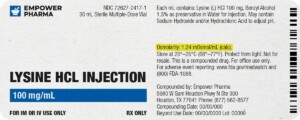
Given the vastness and uniqueness of individualized compounded formulations, it is impossible to list every potential compound we offer. To inquire if we currently carry or can compound your prescription, please fill out the form located on our Contact page or call us at (877) 562-8577.
We source all our medications and active pharmaceutical ingredients from FDA-registered suppliers and manufacturers.

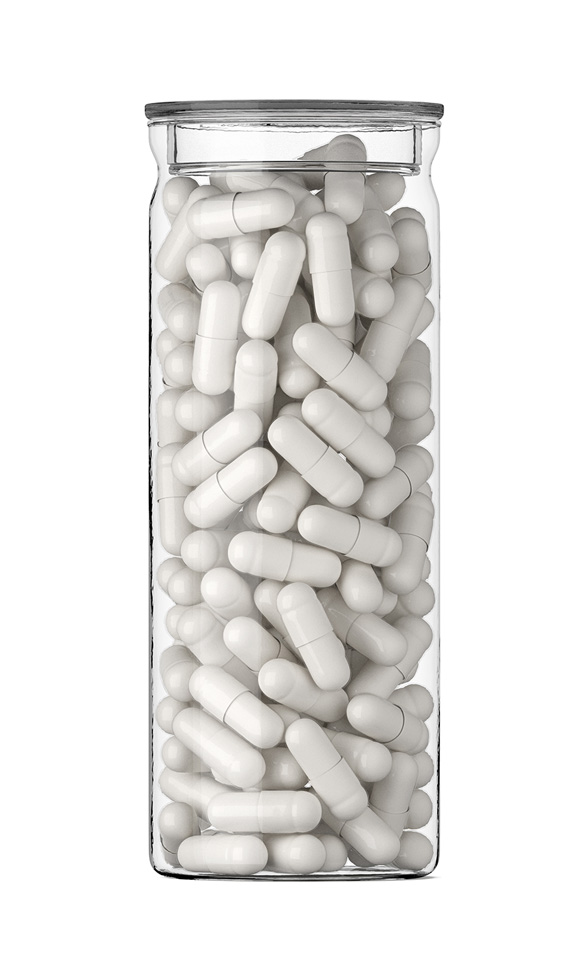
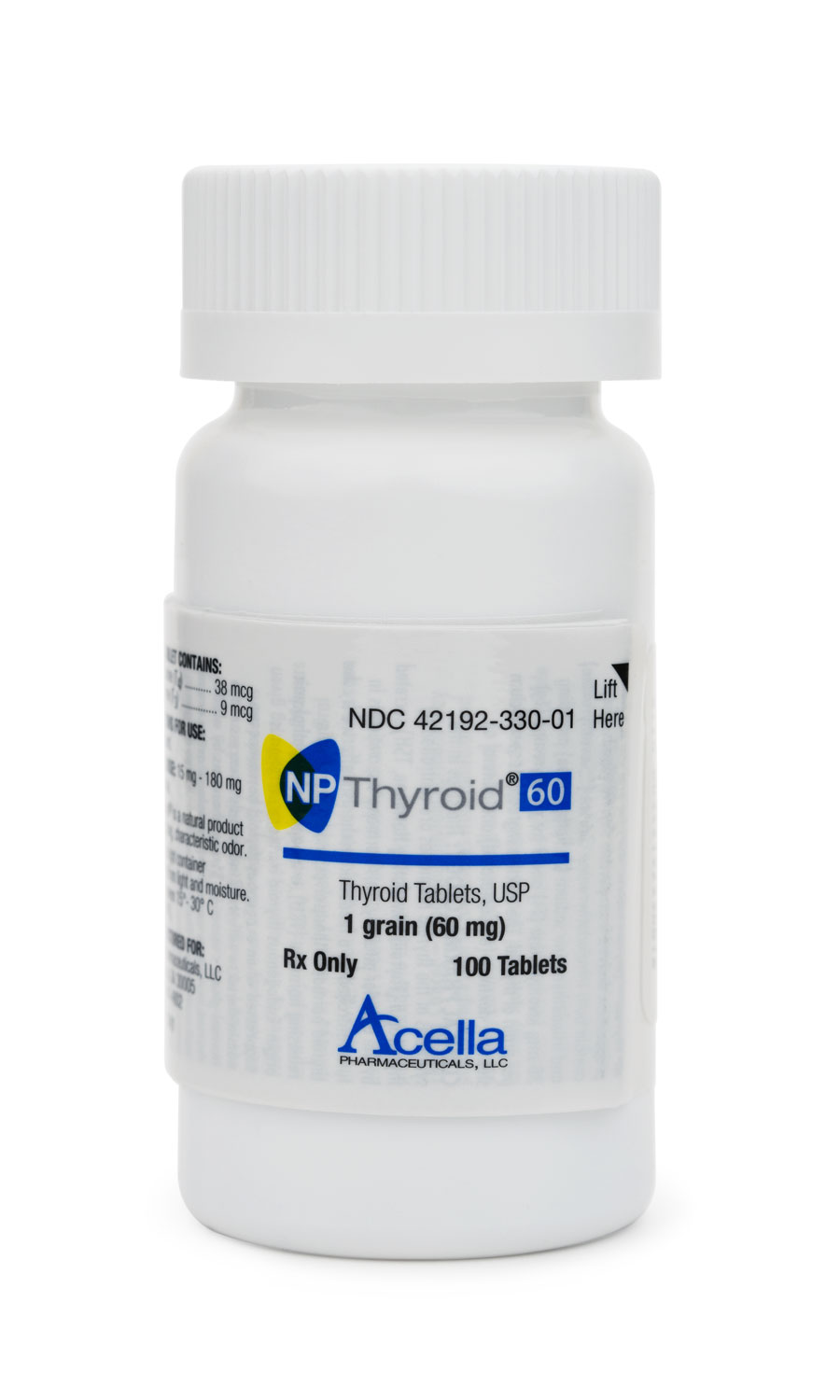 Thyroid Tablets
Thyroid Tablets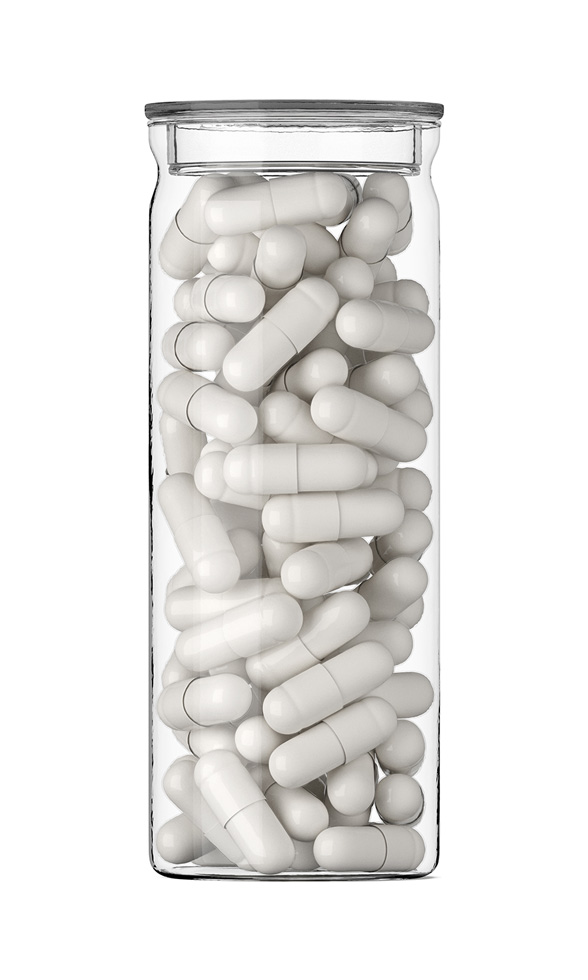 Liothyronine Sodium / Levothyroxine Sodium Capsules
Liothyronine Sodium / Levothyroxine Sodium Capsules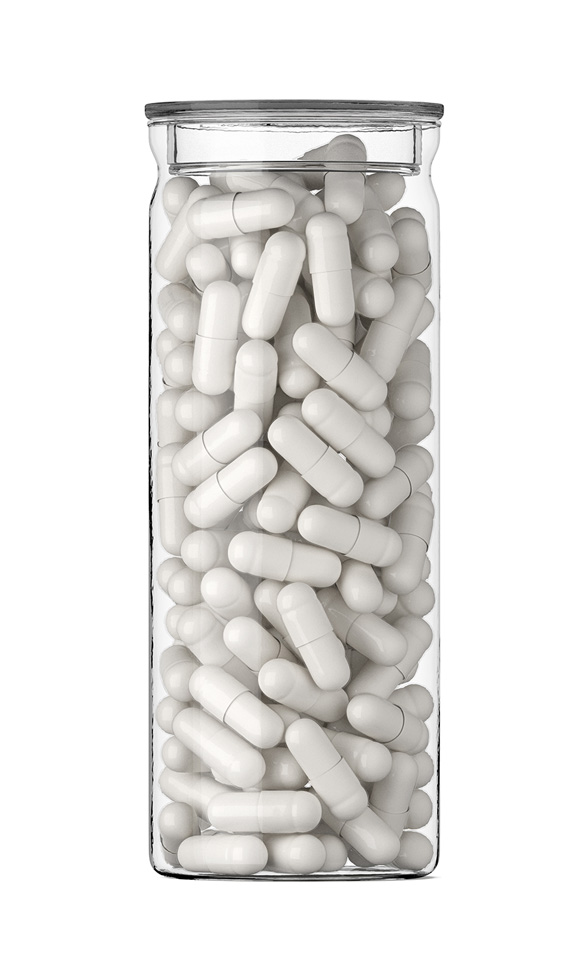 Liothyronine Sodium Capsules
Liothyronine Sodium Capsules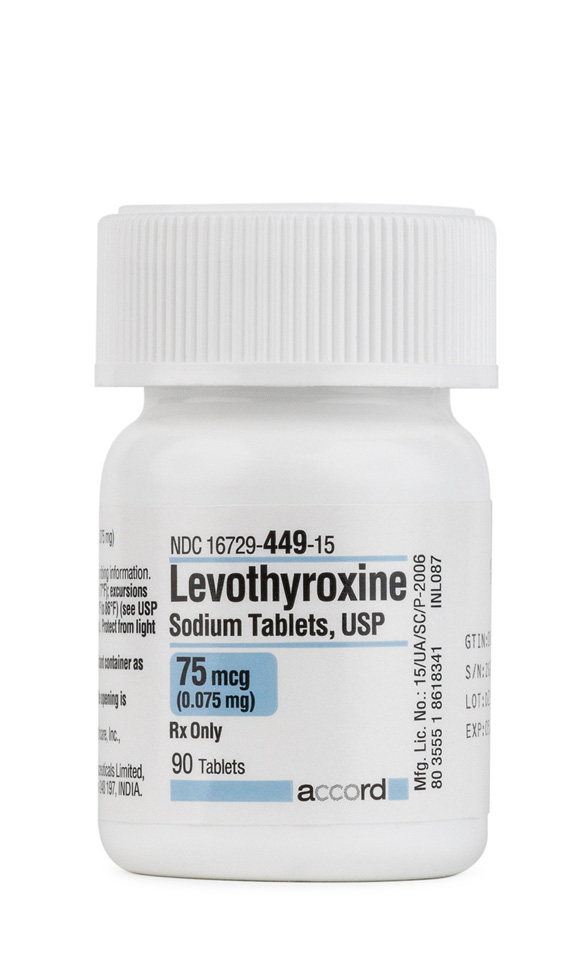 Levothyroxine Sodium Tablets
Levothyroxine Sodium Tablets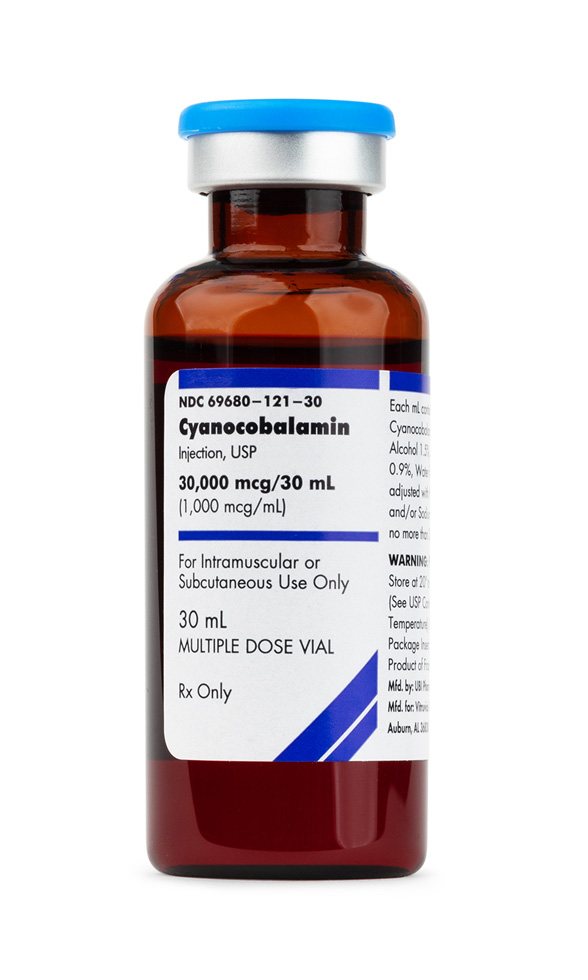 Cyanocobalamin (Vitamin B12) Injection
Cyanocobalamin (Vitamin B12) Injection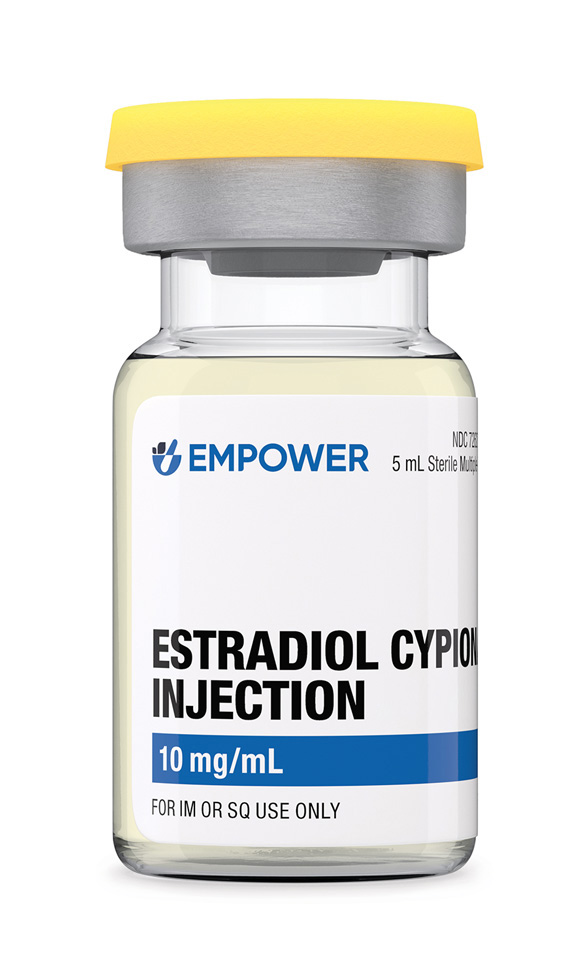 Estradiol Cypionate Injection
Estradiol Cypionate Injection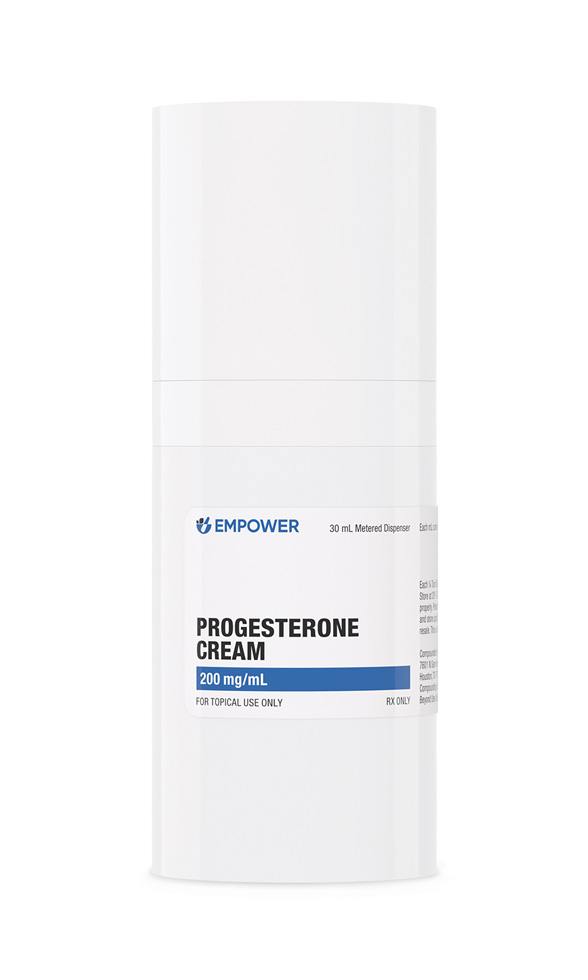 Progesterone Cream
Progesterone Cream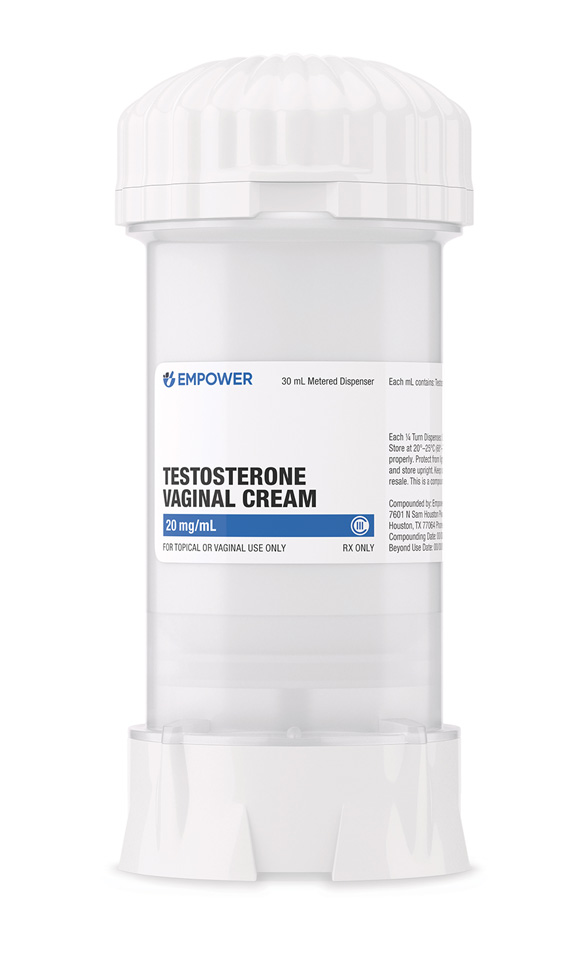 Testosterone Vaginal Cream
Testosterone Vaginal Cream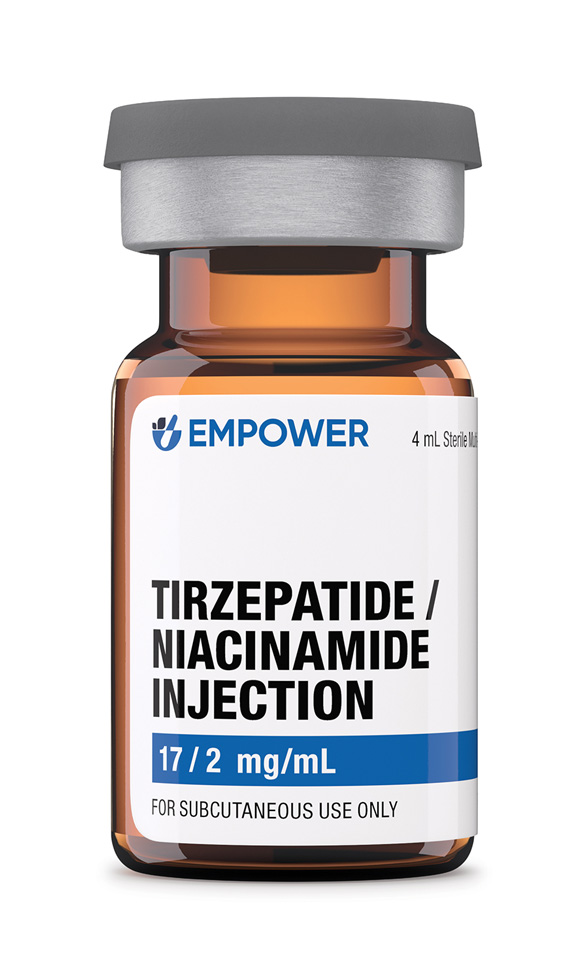 Tirzepatide / Niacinamide Injection
Tirzepatide / Niacinamide Injection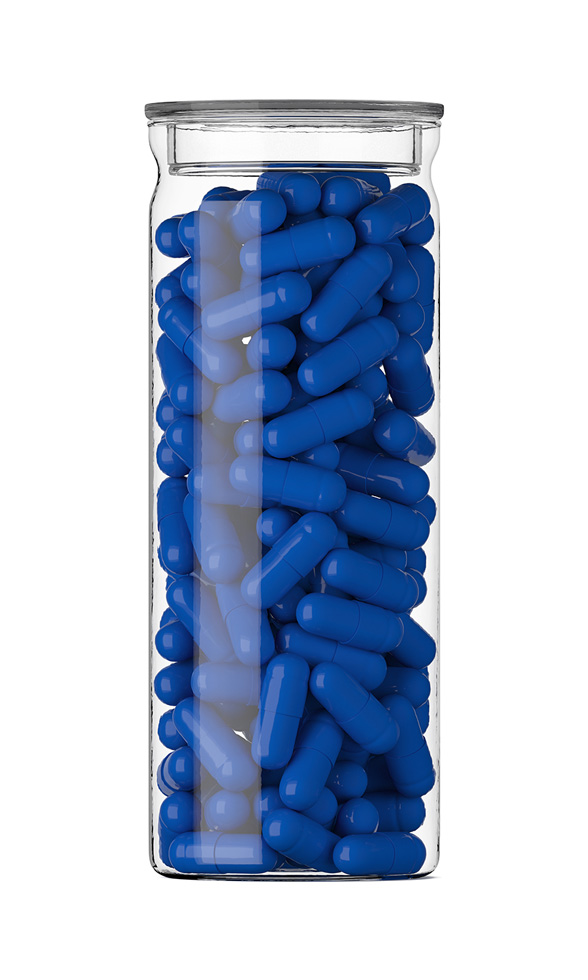 Phentermine HCl Capsules
Phentermine HCl Capsules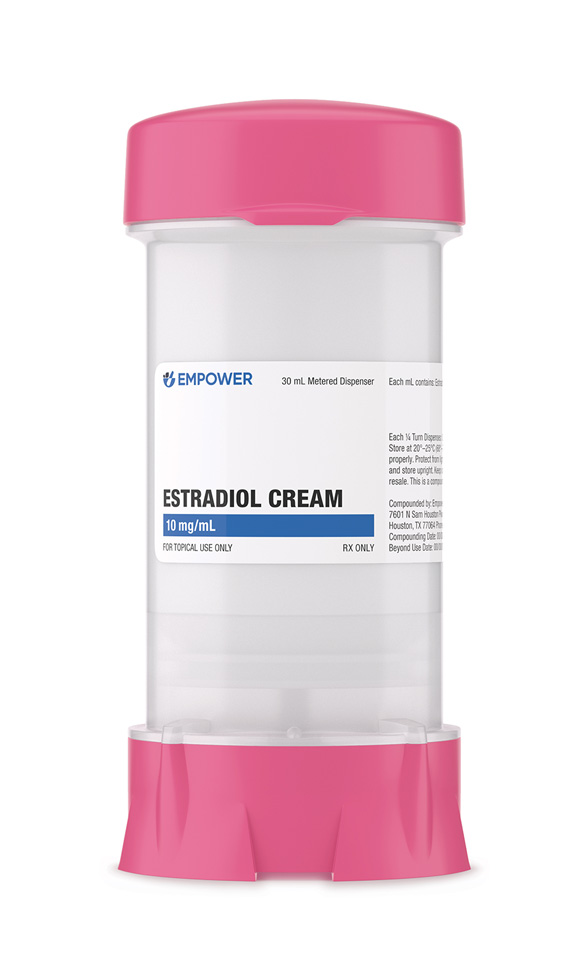 Estradiol Cream
Estradiol Cream